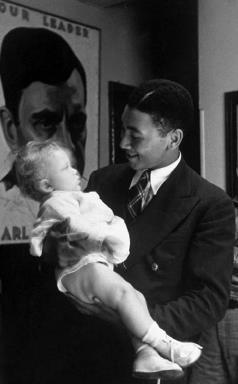The Hughes Court (1930–41)First Amendment |
In what decision did the Hughes Court uphold a flag-salute law? |
The Hughes Court ruled 8–1 in Minersville School District v. Gobitis (1940) that a Pennsylvania flag-salute law was constitutional. The law required public school students to stand and recite the Pledge of Allegiance. A family of Jehovah’s Witnesses in Minersville, Pennsylvania, contended that the law infringed on their freedom of religion. Twelve-year-old Lillian Gobitas and her ten-year-old brother William were expelled from school for refusing to salute the flag. (The correct spelling of their name was Gobitas; a court clerk misspelled it as “Gobitis” and it stayed that way in the official records).
The U.S. Supreme Court disagreed with the family, finding that the flag-salute was a constitutional patriotic exercise not designed to infringe on religious beliefs. “National unity is the basis of national security,” wrote Justice Felix Frankfurter for the majority. “The ultimate foundation of a free society is the binding tie of cohesive sentiment.” For their part, the Gobitas children never returned to public school after the decision.

